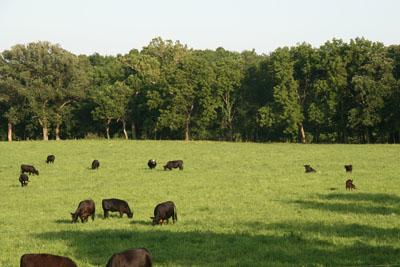
In early November, the SFFI team traveled to Manhattan, Kansas to deliver the 9th Tools for Engaging Landowners Effectively workshop of 2014. The 30 workshop participants included representatives from Kansas State University, KSU-Extension, the U.S. Forest Service, the National Agroforestry Center, NRCS, local conservation groups, and landowners.
After a brief introduction to TELE principles and tools, participants were divided into three breakout groups. Each group worked with a workshop facilitator to develop a landowner outreach plan for addressing a particular natural resource challenge.
The Farmer/Shelterbelt aimed to get Kansas farmers to value the benefits of shelterbelts and plant and maintain these wooded areas on their land. This group decided to play on farmers’ concerns about the weather and to position shelterbelts as a one-time investment that secured higher yields and other benefits over many years.
The goal of the Farmer/Streamside group was to get farmers to establish or actively manage healthy, productive, and functional riparian areas. The group’s communication plan aims to tap into farmers’ desire to maximize the value of their land for themselves and future owners.
The Kansas Forestry Association group focused more generally on encouraging farmers to see woodlands as an integral and valued part of their overall land holding and to commit to managing and tending woodland areas to maximize the productivity and value of their land.
This workshop was part of a multi-year USFS-funded project that aims to increase appropriate forest cover on privately held land in Kansas. One important component of that grant is a survey of Kansas farm landowners to better understand the factors that might motivate them to plant and care for shelterbelts and riparian areas. The ideas proposed during this workshop will inform that survey and the plans will be amended according to survey results. Moving forward, we will stay in touch with all three groups and track their progress as they implement and evaluate the effectiveness of these exciting outreach initiatives.